 India has nominated member of Niti Ayog, Ramesh Chandra to head Food and Agricultural Organisation. Ramesh Chand’s candidature is challenged by Qu Dongyu of China, Medi Moungui of Cameroon, Catherine Geslain-Laneelle of France and Davit Kirvalidze of Georgia. To get elected to the post of Director-General of FAO, the candidate needs to secure a simple majority of the 194 members. The only Indian to head the FAO is Binay Ranjan Sen, who was the Director-General from 1956 to 1967. India has nominated member of Niti Ayog, Ramesh Chandra to head Food and Agricultural Organisation. Ramesh Chand’s candidature is challenged by Qu Dongyu of China, Medi Moungui of Cameroon, Catherine Geslain-Laneelle of France and Davit Kirvalidze of Georgia. To get elected to the post of Director-General of FAO, the candidate needs to secure a simple majority of the 194 members. The only Indian to head the FAO is Binay Ranjan Sen, who was the Director-General from 1956 to 1967. |
Food and Agriculture Organisation
The Food and Agriculture Organization (FAO) is a specialized agency of the United Nations which leads international efforts to defeat hunger. FAO aims to achieve food security for all and make sure that people have regular access to enough high-quality food to lead active healthy lives.
Food and Agriculture Organisation (FAO) was established as the specialised agency in 1945 at the first session of the United Nations and the temporary headquarters of the FAO was located at Washington in the US and the headquarters was moved to Rome, Italy in the year 1951. Priority areas of FAO in the fight against hunger are:
|
 The Appointment Committee of the Cabinet has approved the appointment of P V Ramesh appointed as the director-general of the National Archives of India. Currently, he is serving as the Chairman and Managing Director (CMD) of Rural Electrification Corporation. The Appointment Committee of the Cabinet has approved the appointment of P V Ramesh appointed as the director-general of the National Archives of India. Currently, he is serving as the Chairman and Managing Director (CMD) of Rural Electrification Corporation. |
| National Archives of India The genesis of National Archives of India can be traced to the traced to the report of Sandeman, the Civil Auditor who had stressed the need of relieving the offices of congestion by the destruction of the papers of routine nature and transfer of all valuable records to a ‘Grand Central Archive’. In 1889 Professor G.W. Forrest of Elphinstone College, Bombay entrusted the job of examining the records of the Foreign Department of the Government of India made a strong plea for transferring all records of the administration of East India Company to a Central Repository This led to the establishment of Imperial Records Department (IRD) on 11 March 1891 in the Imperial Secretariat Building at Calcutta (Kolkata). In 1911 the IRD was shifted to Delhi. After the Independence, the government of India rechristened IRD as the National Archives of India with Director of Archives as its head and in the year 1990 the office of the Director of Archives was redesignated as Director General of Archives. At present National Archives of India is an attached office under the Ministry of Culture and has a Regional Office at Bhopal and three Records Centres at Jaipur, Puducherry and Bhubaneswar. |
 President Ram Nath Kovind has nominated Justice SA Bobde of the Supreme Court as Executive Chairman of National Legal Services Authority (NALSA). The post is currently held by Justice AK Sikri who is due to retire on 6th March. President Ram Nath Kovind has nominated Justice SA Bobde of the Supreme Court as Executive Chairman of National Legal Services Authority (NALSA). The post is currently held by Justice AK Sikri who is due to retire on 6th March. |
| National Legal Services Authority (NALSA) The National Legal Services Authority (NALSA) is a statutory body constituted under the Legal Services Authorities Act, 1987 to provide free Legal Services to the weaker sections of the society. NALSA fulfils the provisions under the Article 39A of the constitution which provides for free legal aid to the poor and weaker sections of the society, to promote justice on the basis of equal opportunity. The Chief Justice of India is the Patron-in-Chief and the Senior most Judge of the Supreme Court of India is the Executive Chairman of the Authority. |
Objectives of NALSA
|
 The World Bank will provide a $250-million loan for the National Rural Economic Transformation Project (NRETP). National Rural Economic Transformation Project is a new sub-component under the Deendayal Antyodaya Yojana – National Rural Livelihoods Mission (DAY-NRLM) of the Ministry of Rural Development. The World Bank will provide a $250-million loan for the National Rural Economic Transformation Project (NRETP). National Rural Economic Transformation Project is a new sub-component under the Deendayal Antyodaya Yojana – National Rural Livelihoods Mission (DAY-NRLM) of the Ministry of Rural Development. |
National Rural Economic Transformation Project
|
 The National Annual Rural Sanitation Survey 2018-19 was conducted by an Independent Verification Agency under the World Bank support project to the Swachh Bharat Mission (Grameen). The National Annual Rural Sanitation Survey 2018-19 was conducted by an Independent Verification Agency under the World Bank support project to the Swachh Bharat Mission (Grameen). |
Findings of the Survey
|
| Swacch Bharat Mission Gramin As per the data from the Ministry of Drinking Water and Sanitation which is the implementing ministry of Swacch Bharat Mission Gramin, about 500 million people have stopped defecating in the open. As a result, the number of people defecating in open is down from 550 million at the beginning of the programme to less than 50 million today. Under the Swacch Bharat Mission Gramin, 9 crore toilets have been built across rural India under the Mission. Under the Mission over 5.5 lakh villages and 615 districts have been declared ODF, along with 30 ODF States and Union Territories. |
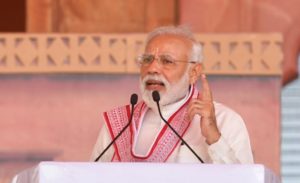 PM Narendra Modi launched the indigenously-developed National Common Mobility Card (NCMC) to enable people to pay multiple kinds of transport charges, including metro services and toll tax, across the country. Dubbed as ‘One Nation One Card’, the inter-operable transport card would allow the holders to pay for their bus travel, toll taxes, parking charges, retail shopping and even withdraw money. PM Narendra Modi launched the indigenously-developed National Common Mobility Card (NCMC) to enable people to pay multiple kinds of transport charges, including metro services and toll tax, across the country. Dubbed as ‘One Nation One Card’, the inter-operable transport card would allow the holders to pay for their bus travel, toll taxes, parking charges, retail shopping and even withdraw money. |
| Source: Economic Times |
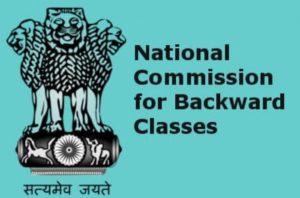 Bhagwan Lal Sahni has been appointed as the chairman of the newly constituted National Commission for Backward Classes (NCBC). Kaushalendra Singh Patel, Sudha Yadav and Achary Talloju have been appointed as members of the commission. Their names were approved by President Ram Nath Kovind. The NCBC was given constitutional status by Parliament in 2018, after repealing the National Commission for Backward Classes Act, 1993. Bhagwan Lal Sahni has been appointed as the chairman of the newly constituted National Commission for Backward Classes (NCBC). Kaushalendra Singh Patel, Sudha Yadav and Achary Talloju have been appointed as members of the commission. Their names were approved by President Ram Nath Kovind. The NCBC was given constitutional status by Parliament in 2018, after repealing the National Commission for Backward Classes Act, 1993. |
| Source: Business Standard |
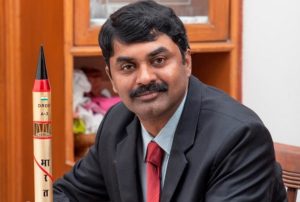 Satheesh Reddy, the Secretary of India’s Department of Defence R&D and Chairman of the Defence Research and Development Organisation (DRDO) has been chosen by the American Institute of Aeronautics and Astronautics (AIAA) as the co-winner of the 2019 Missile Systems Award. The other co-winner is Rondell J. Wilson who is a former Principal Engineering Fellowof Raytheon Missile Systems. Satheesh Reddy is the first person to be honoured with this award outside the USA in 40 years. Satheesh Reddy, the Secretary of India’s Department of Defence R&D and Chairman of the Defence Research and Development Organisation (DRDO) has been chosen by the American Institute of Aeronautics and Astronautics (AIAA) as the co-winner of the 2019 Missile Systems Award. The other co-winner is Rondell J. Wilson who is a former Principal Engineering Fellowof Raytheon Missile Systems. Satheesh Reddy is the first person to be honoured with this award outside the USA in 40 years. |
| Source: The Hindu |
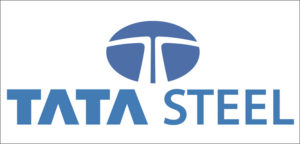 Tata Steel has received the award as one of the 2019 World’s Most Ethical Companies. The award has been given by Ethisphere Institute, USA. The company was also recognised 7 times previously and is one of the only two awardees in the ‘Metals, Minerals and Mining’ industry. In 2019, 128 honourees across 21 countries and 50 industries have been recognised. Tata Steel has received the award as one of the 2019 World’s Most Ethical Companies. The award has been given by Ethisphere Institute, USA. The company was also recognised 7 times previously and is one of the only two awardees in the ‘Metals, Minerals and Mining’ industry. In 2019, 128 honourees across 21 countries and 50 industries have been recognised. |
| Source: Business Standard |
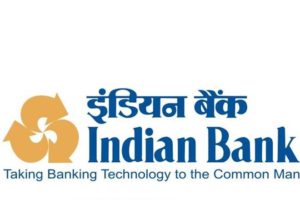 Indian Bank, a Public Sector Bank (PSB), headquartered at Chennai, Tamil Nadu has been awarded the Best Bank Award by the Tamil Nadu government for successfully meeting the needs of women’s self-help groups (SHGs). The award was given to MK Bhattacharya, the executive director of Indian Bank by the Chief Minister of Tamil Nadu K Palaniswami at Salem, Tamil Nadu. Indian Bank, a Public Sector Bank (PSB), headquartered at Chennai, Tamil Nadu has been awarded the Best Bank Award by the Tamil Nadu government for successfully meeting the needs of women’s self-help groups (SHGs). The award was given to MK Bhattacharya, the executive director of Indian Bank by the Chief Minister of Tamil Nadu K Palaniswami at Salem, Tamil Nadu. |
| Source: Moneycontrol |
You need to login to perform this action.
You will be redirected in
3 sec
